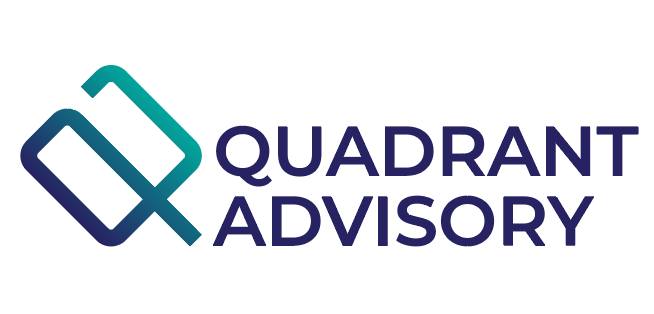Advanced Bookkeeping and Accounting Practices
Core Strategies for Large Enterprises

For large enterprises, having strong bookkeeping and accounting practices are crucial for the success of the company. Advanced techniques can help better manage complex transactions, accruals, and financial statements in order to identify any potential risks or inaccuracies. In this article we look at strategies for managing these processes successfully.
Understand the core principles of accounting and bookkeeping.

It is important to have an understanding of the core principles of accounting and bookkeeping in order to provide accurate financial reports. This includes having a clear understanding of standard accounting methods such as accrual basis and cash basis, as well as principles such as double-entry bookkeeping and Generally Accepted Accounting Principles (GAAP). Knowledge of tools such as online bookkeeping software can also be beneficial for managing finances more efficiently.
For businesses that operate on a larger scale, thus engaging in more complex transactions, there are a few advanced bookkeeping and accounting practices that should be taken into consideration. These include using accrual basis to establish clear in and outflows of funds; implementing bank reconciliation processes for better oversight; tracking cash flows over different time periods through cash flow forecasting techniques; understanding financial ratios and their importance for making decisions about investments; as well as regular regulatory compliance checks as may be required by governing organizations. All these measures add up to provide meaningful information when it comes time to report financials or create budget plans. By establishing good practices now, you can save yourself time and hassle in the long run – while ensuring that your business remains successful.
Utilize technology to enhance speed and accuracy.

In order to keep up with the increasing demands and complexities of accounting for large enterprises, having access to automated tools such as online bookkeeping software can be extremely beneficial. This type of software will provide quick insights into financial statements, allowing you to easily monitor cash flows and reconcile accounts. It can also help reduce errors in bookkeeping processes by automating manual tasks, resulting in more accurate and faster statements.
Automated bookkeeping and accounting software can be used to eliminate paperwork, increase efficiency, and reduce the time spent developing financial statements. It also allows you access to a wider array of reports such as statement of profit or loss, cash flow, position analysis, cost data analysis, and more. By utilizing automated bookkeeping software to manage complex transactions and accruals, businesses are able to focus their efforts on other areas such as creating strategies for growth or increasing capital efficiency. Automated tools provide companies with up-to-date information for making decisions which can ultimately result in increased profits.
Practice data-driven decision making for long term success.

Data-driven decision making is essential for long-term success in today’s business environment. Leveraging the right insights from your accounting and bookkeeping processes can help you make better decisions. Analyzing financial statements, budgets, and operational costs can give you the data needed to assess what resources should be allocated where, as well as which projects should be prioritized in order to maximize revenue and improve overall profitability.
Advanced bookkeeping and accounting strategies can provide key information that can be used to optimize your cash flow, manage complex financial transactions, correctly calculate accruals and salaries, and analyze trends for more efficient budgeting. With sophisticated data systems and predictive analytics tools, you can uncover insights faster and make better decisions quickly. Utilizing software to implement automated processes such as recording transactions or simplifying expense tracking will help you reduce time spent dealing with mundane tasks and instead focus on strategic & long-term goals.
Establish strong internal controls over financial information.

It’s crucial for large enterprises to put in place strong internal controls to ensure accurate and up-to-date financial information. Internal controls can be developed through policies and procedures that spell out the acceptable processes for collecting, recording, summarizing, and reporting financial data. These should include checks and balances to spot any problem areas in the system. Regular audits can also help identify any existing weaknesses so they can be corrected before more serious problems arise.
To further strengthen controls, enterprises should create an organizational chart that clearly outlines who is responsible for managing and analyzing financial information. Good financial reporting requires accurate reviews of all data and accounts to ensure they are up-to-date and free from errors. Enterprises should also maintain a thorough system of records that demonstrate how financial statements are created. This can range from accountants creating paper journal entries to the use of cloud-based software with integrated auditing features. Lastly, it is important to incorporate segregation of duties when handling complex transactions to reduce any risks associated with unauthorized use or mismanagement of funds.
Develop customized reporting templates that fit your specific goals .

Creating customized templates for your financial reporting can help you present more accurate and timely information to key stakeholders. The design of your reporting system should be tailored to the specific goals you want to measure. Depending on the reliability of the data entered into the system, you may want to include features like accrued expenses, institutional accounting standards, and analysis of non-recurring revenues and costs. This will provide you with an accurate picture of your organization’s financial health so that decisions can be made with greater confidence.
In order to ensure your customized reporting system makes use of the most efficient mechanisms, you should employ an experienced analyst who can work closely with accounting staff. Your financial expert should understand how to create and sustain reports without allowing delays or inaccuracies. By tapping into the expertise of a qualified consultant and utilizing industry best practices, your organization can be sure that its data and insights are accurate and up-to-date. This will provide better accuracy in decision-making and help you keep tabs on any issues that may arise. Additionally, it will likely result in greater trust from key stakeholders when reviewing financials as well as more efficient utilization of time during budget planning activities.
Like Our Content?
Share on your favorite
Share on your favorite
social platform
NEED MORE INFO?
